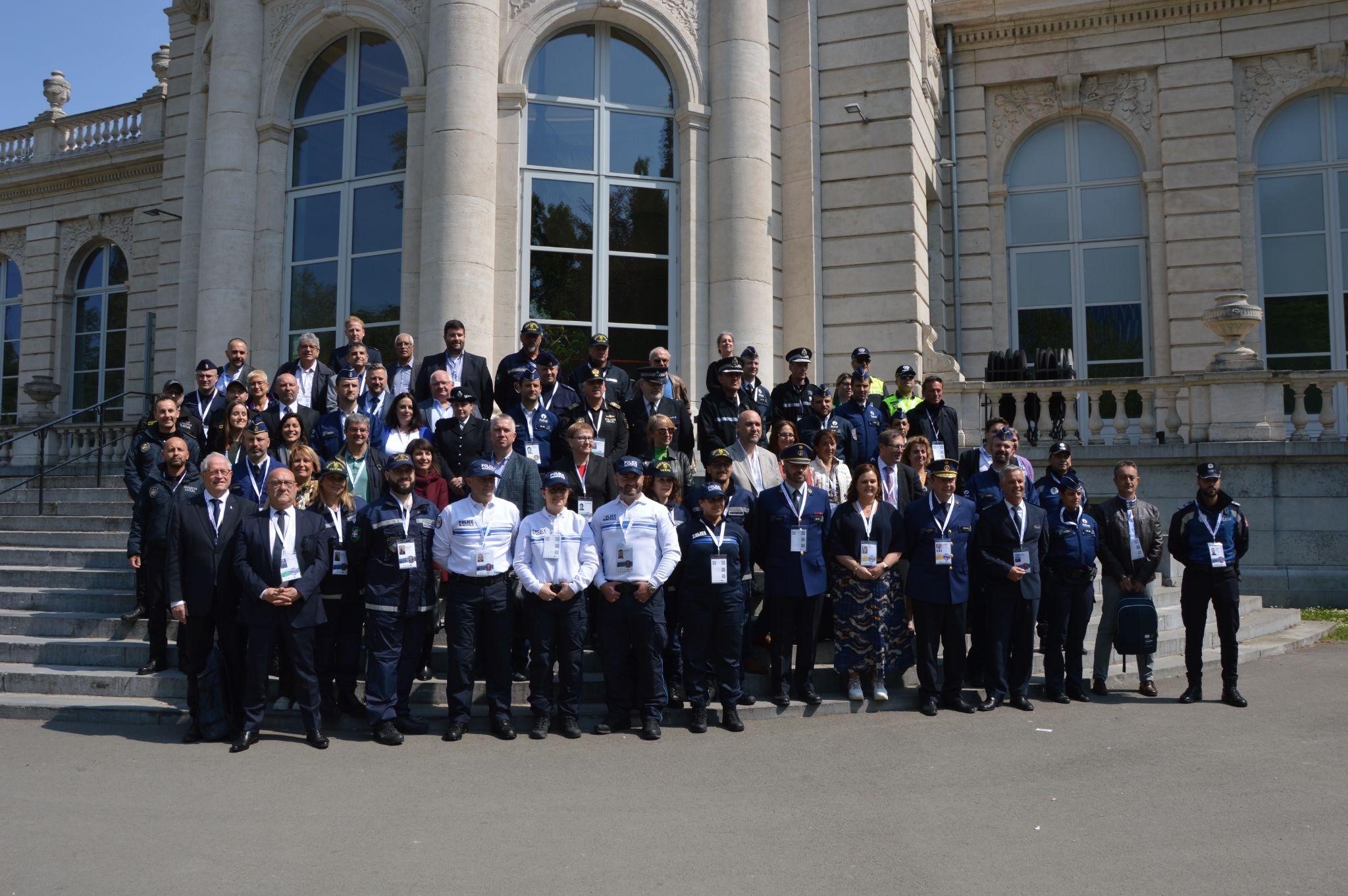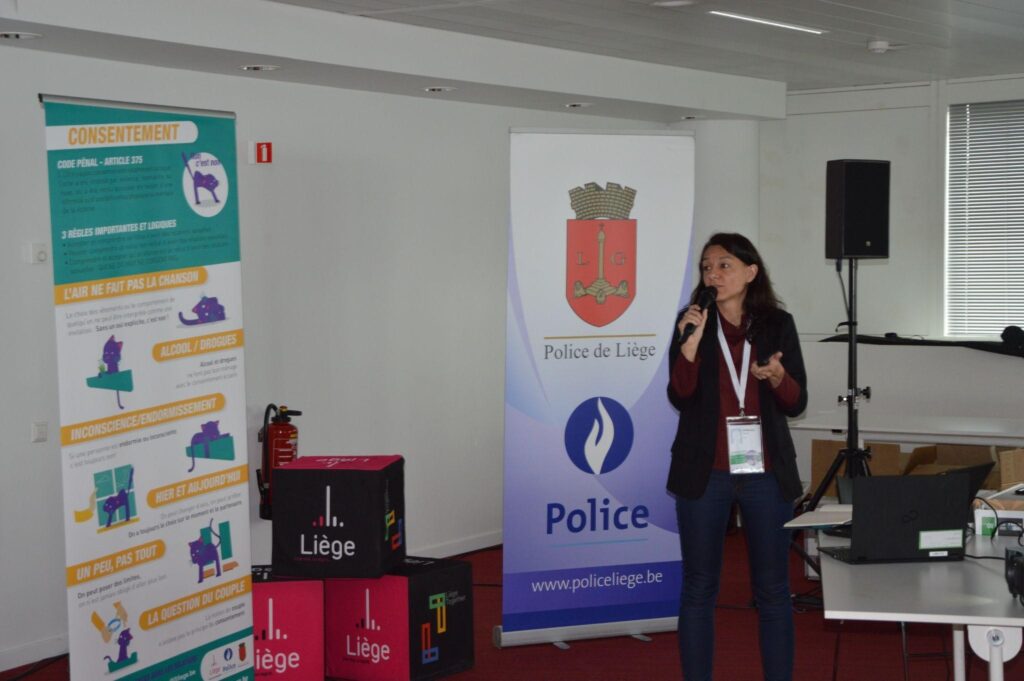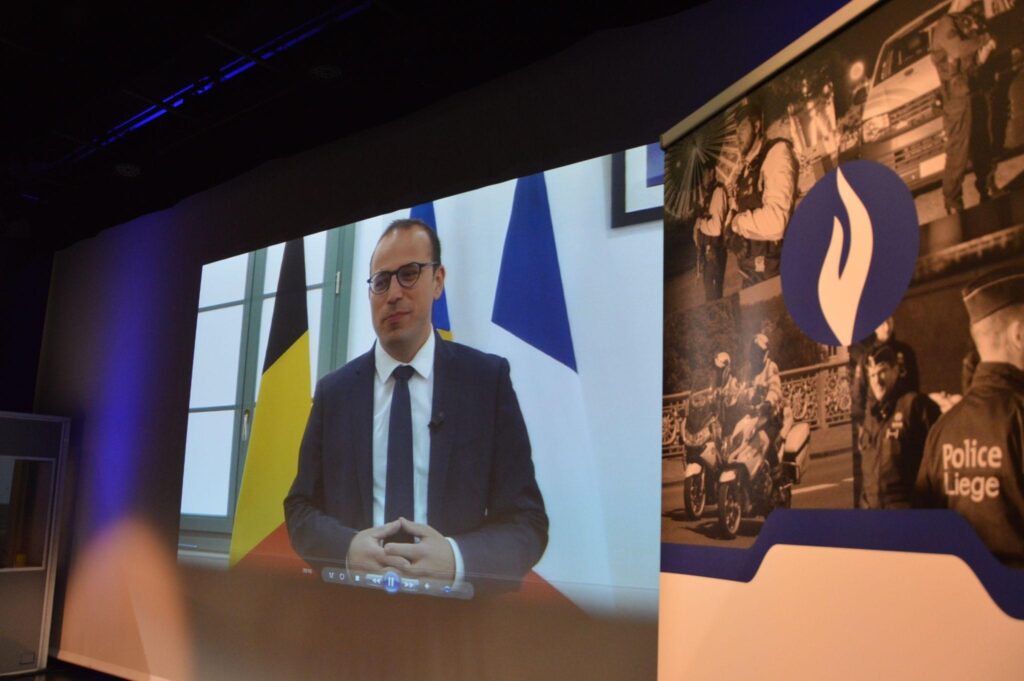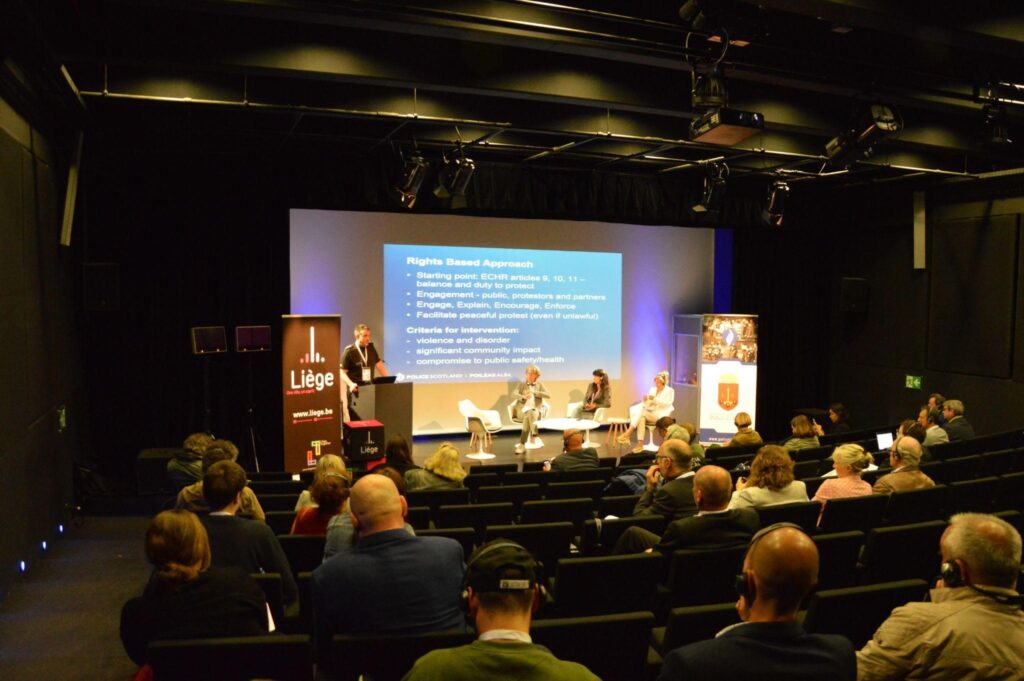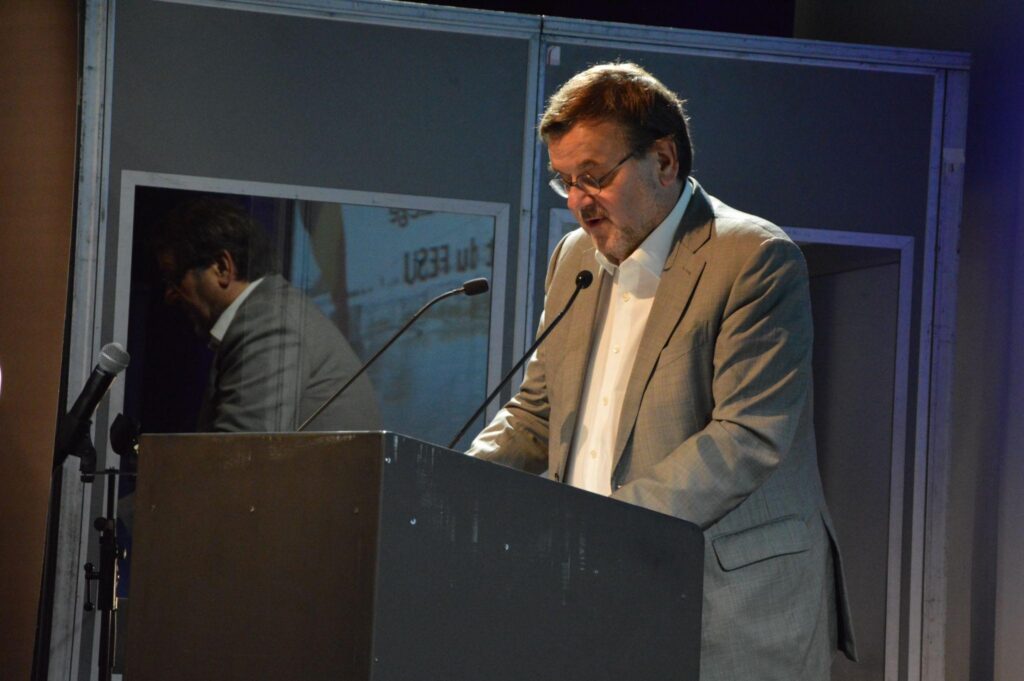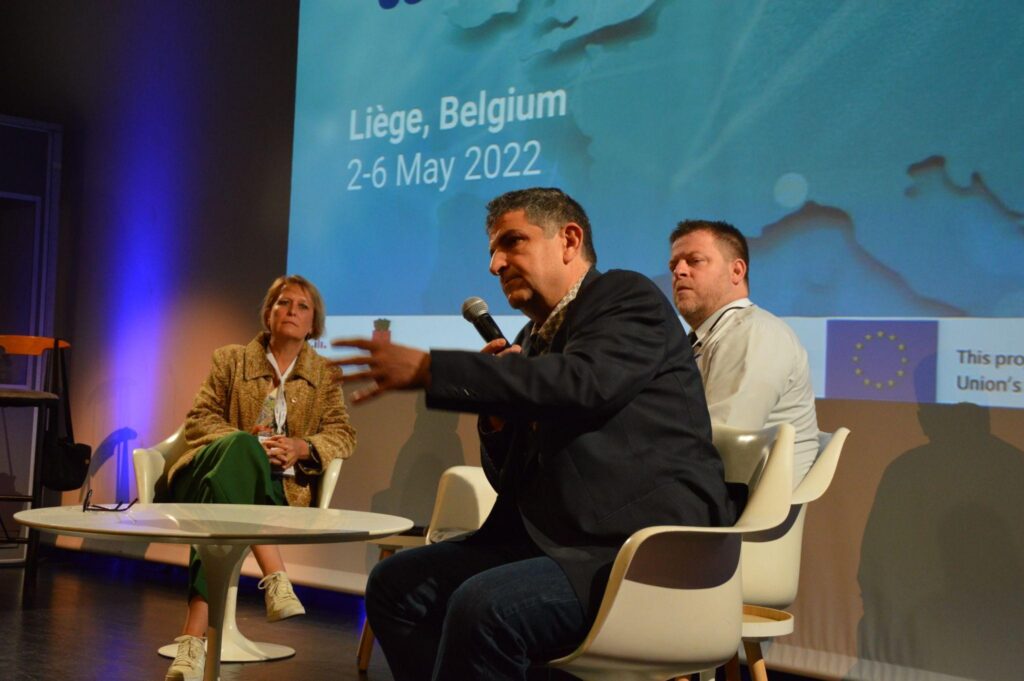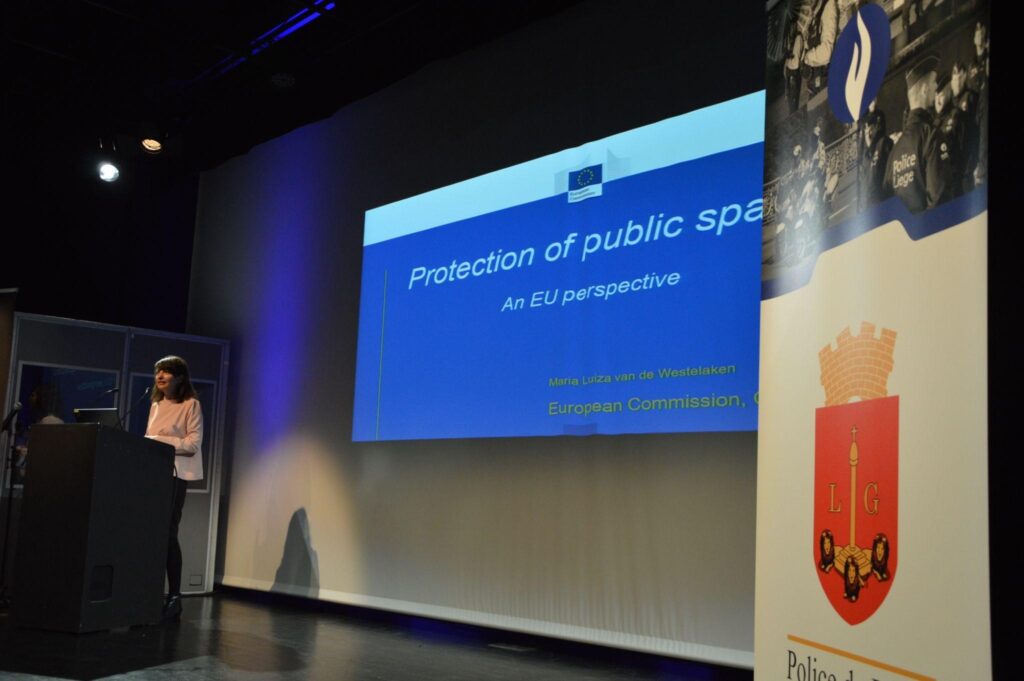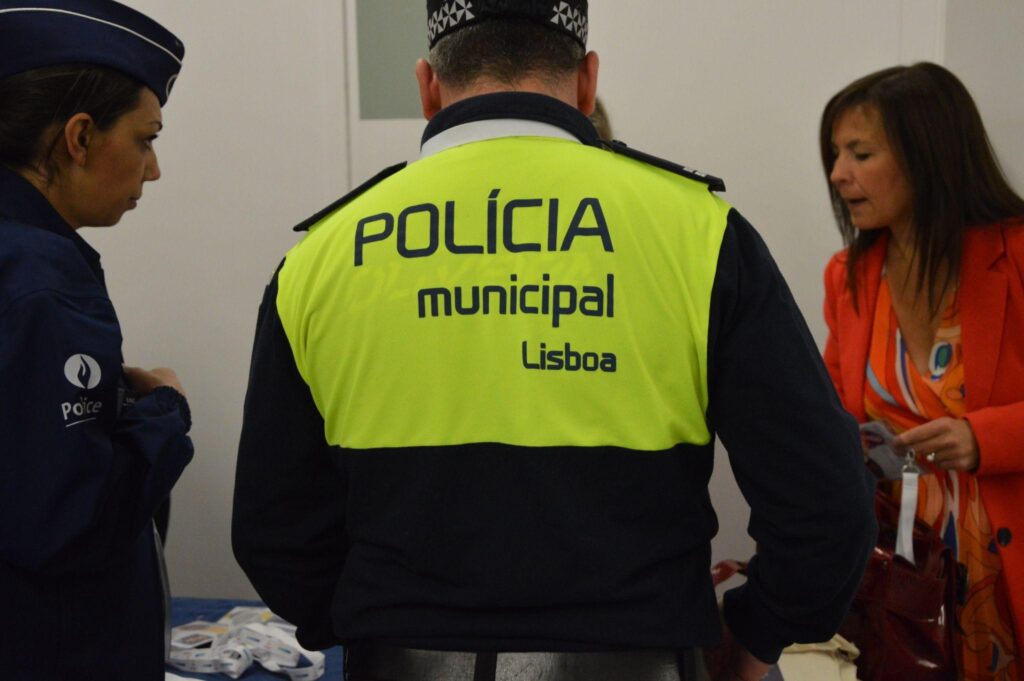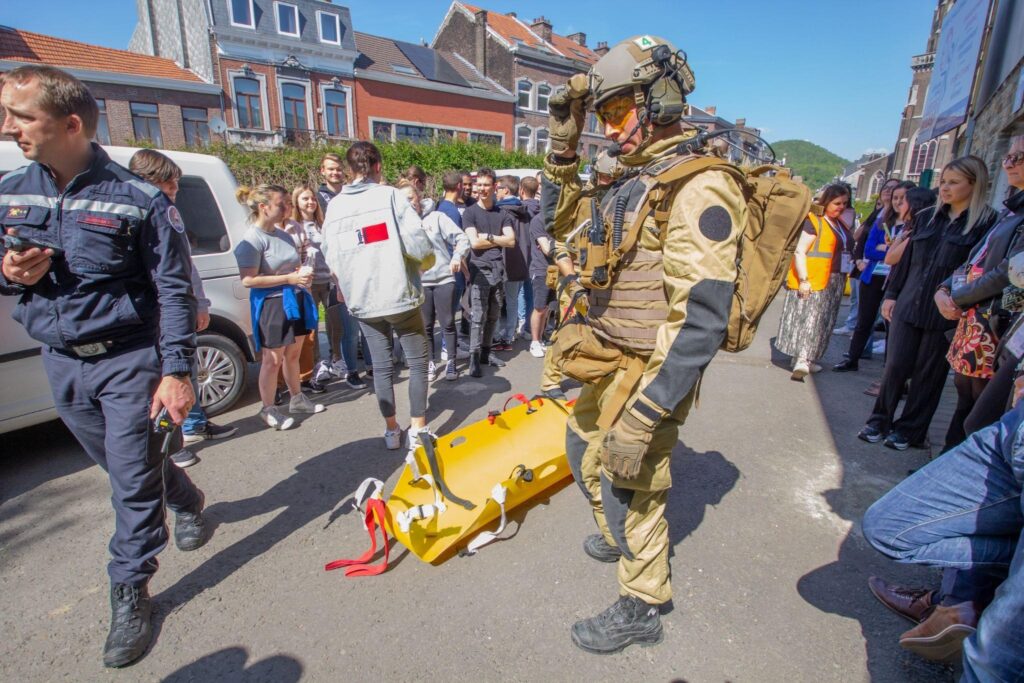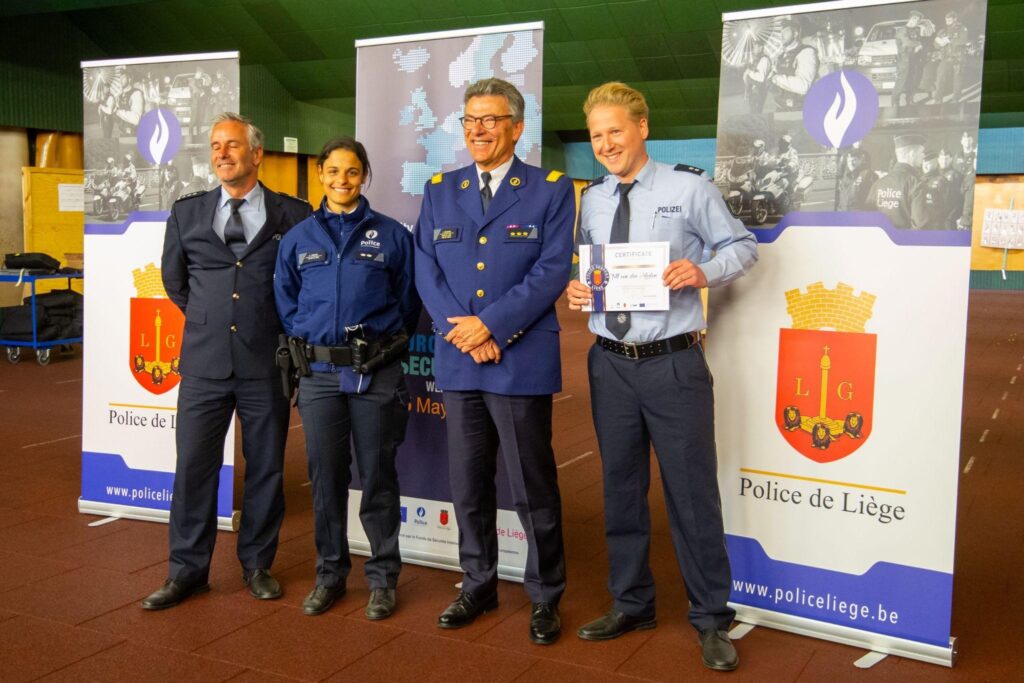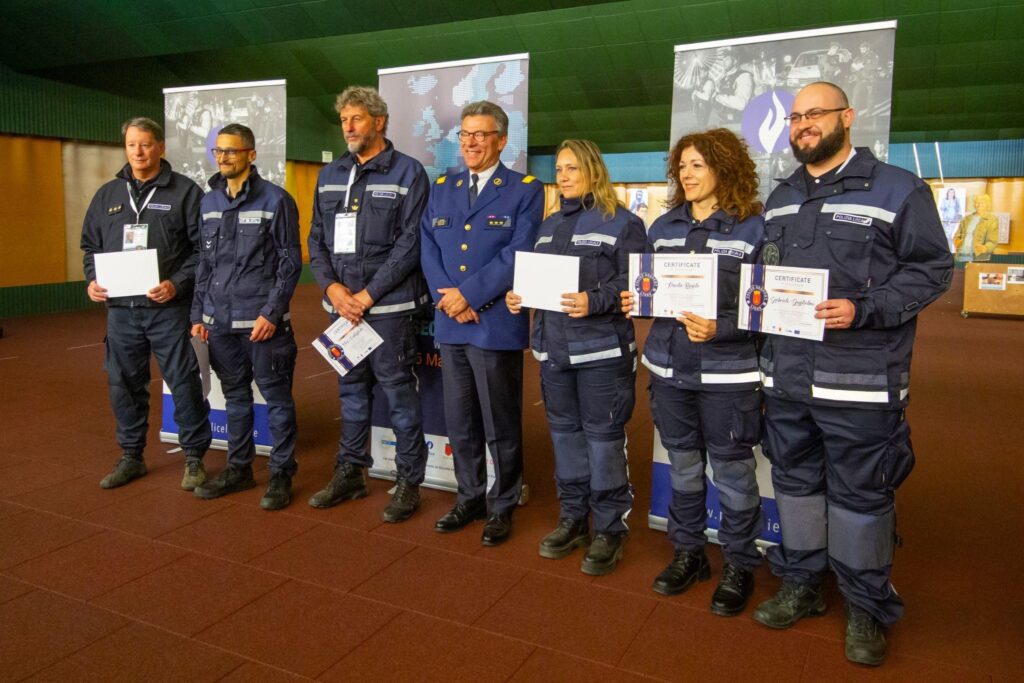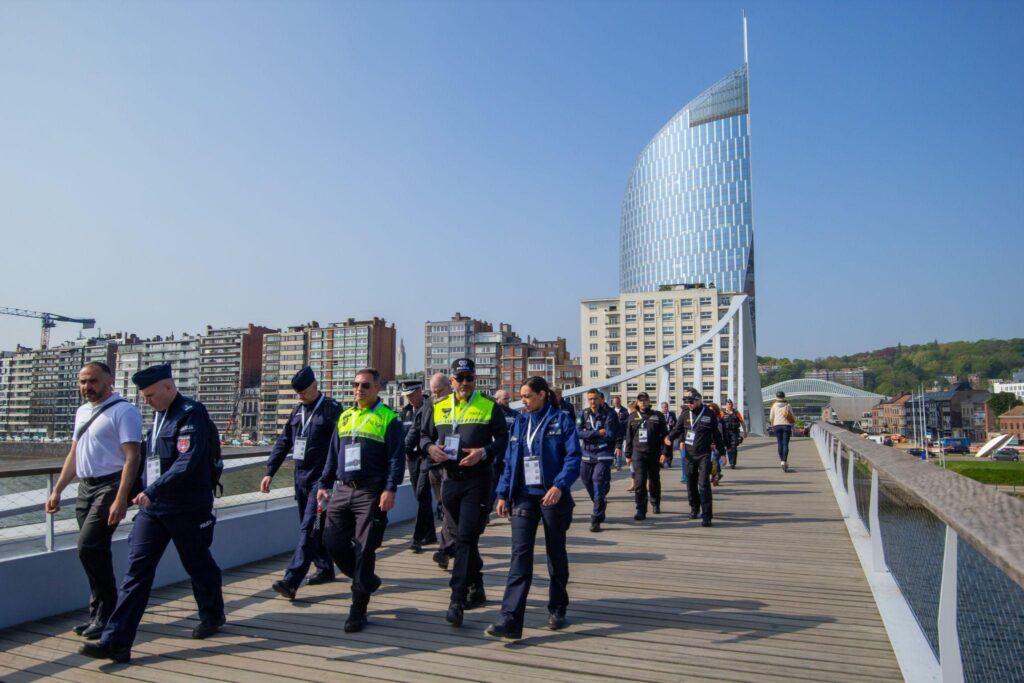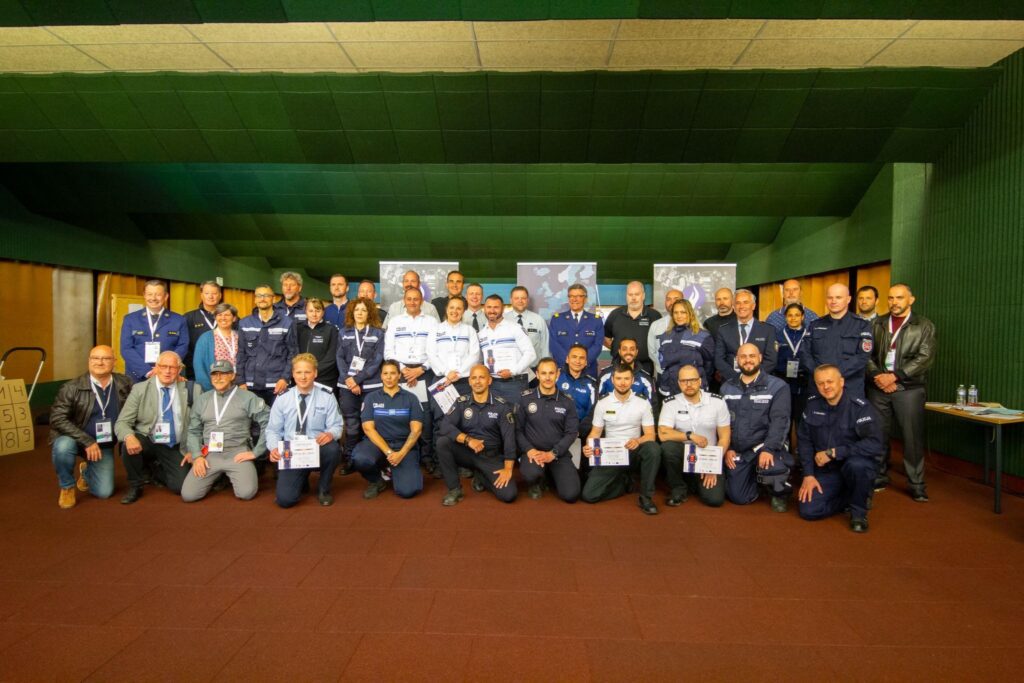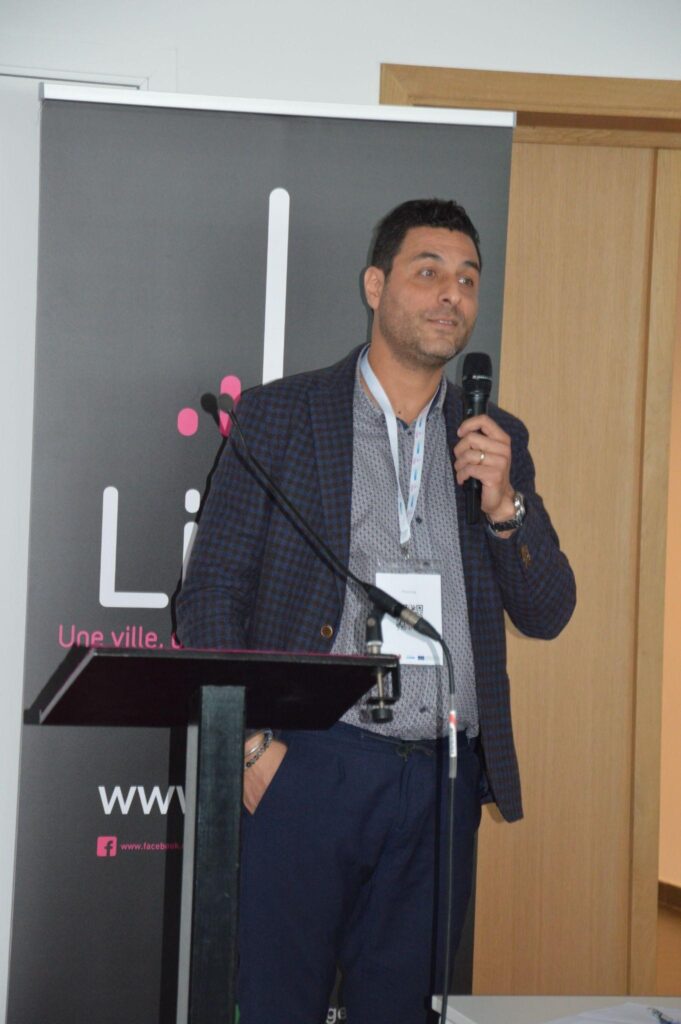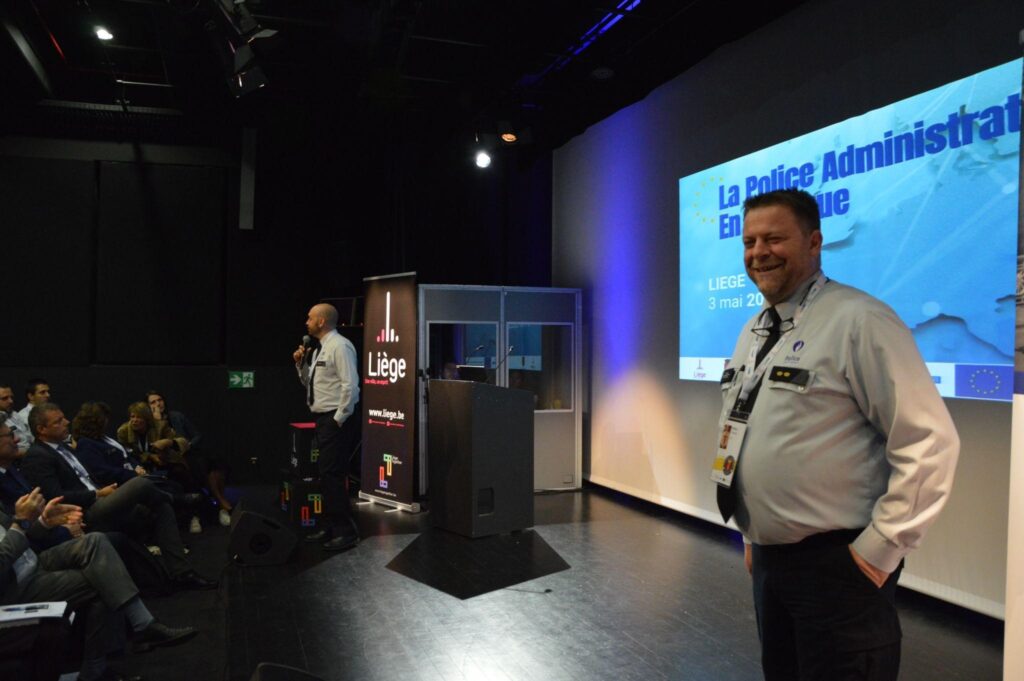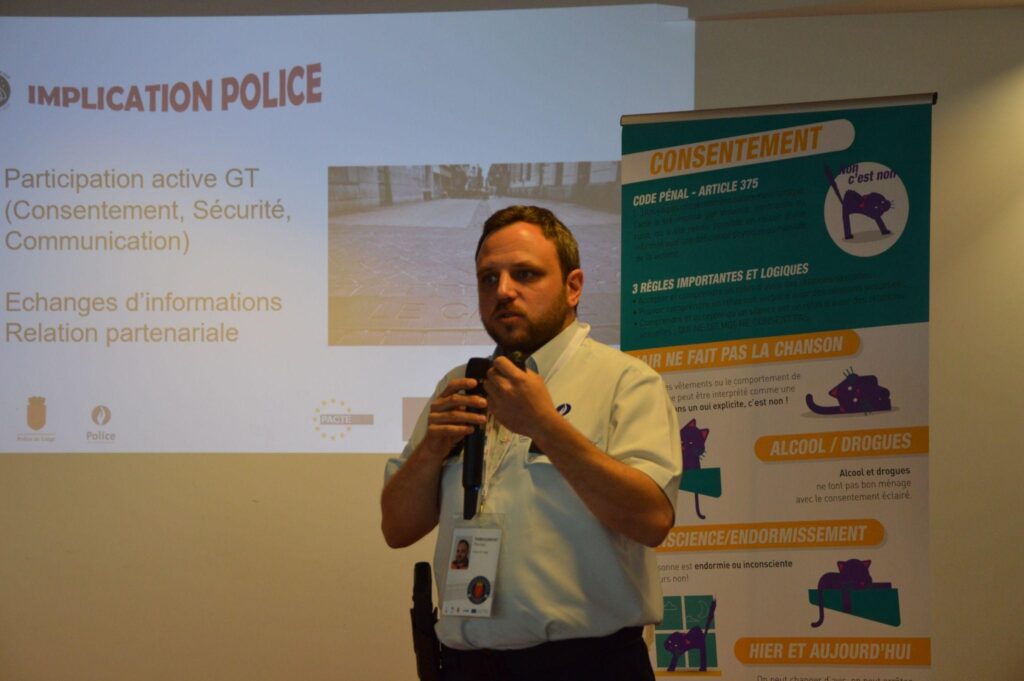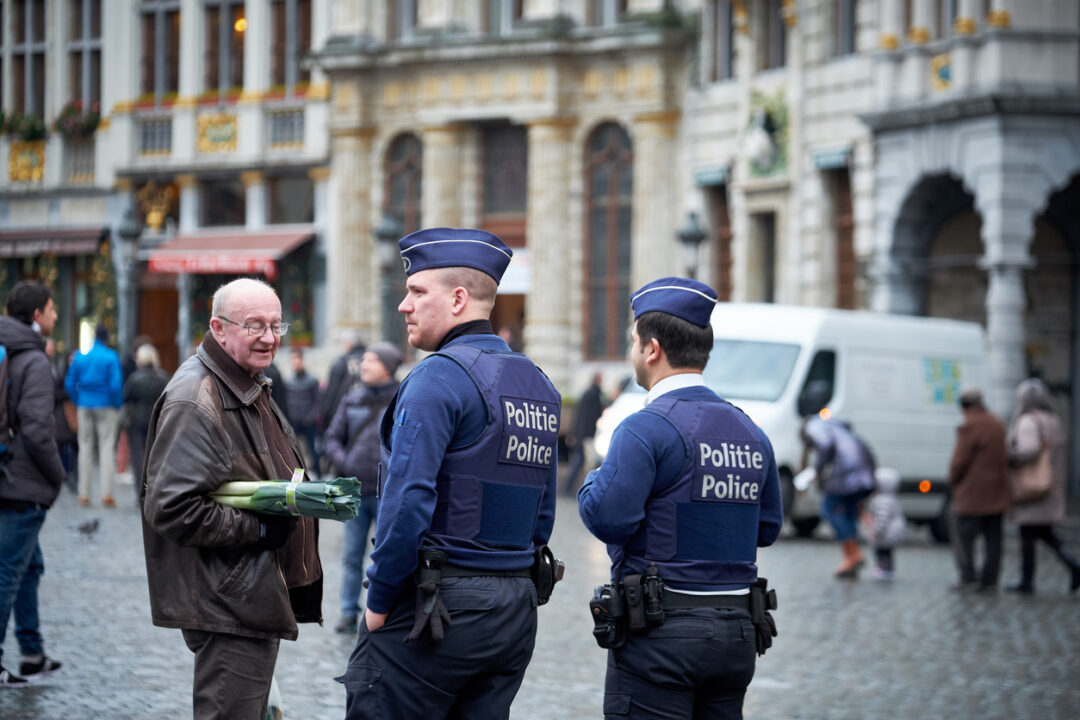Liège, Belgium, May 2022 – In the framework of the PACTE SUR project, the City of Liège (Belgium) hosted the project’s third and final European Week of Security to discuss how to develop, manage and protect public spaces through an integrated approach, on 2-6 May.
The event gathered local security stakeholders, police representatives and experts from all over Europe. The Liège Police Academy also took place the same week.
The PACTESUR project previously held two Weeks of Security, in Nice (2019) and Turin (2020).
An integrated approach to the management of public spaces
A range of European key stakeholders, local and municipal police representatives and experts exchanged their experience of managing public spaces, fostering citizen participation, preventing radicalisation and terrorism, and managing nightlife.
“The PACTESUR project has allowed us to strengthen links and collaboration between the various municipal departments and to exchange knowledge, methods and tools with 14 European cities” Willy Demeyer, Mayor of Liège and President of Efus
“The EU Commission is supportive of Member States and local authorities in protecting public spaces. The new EU Pledge on Urban Security and Resilient Cities Against Radicalisation and Terrorism Initiative is an exemple of it”
Maria-Luiza Van de Westlaken, Policy and Legal Officer, Directorate-General for Migration and Home Affairs, European Commission.
The representatives of the PACTESUR Expert Advisory Committee and Associated Cities shared their experience in managing and protecting public spaces across Europe. Some of the sessions were open to the public to raise awareness among citizens, students and local politicians on their role in crime prevention and as security actors. Indeed, the consensus among participants was that citizens should become equal partners in the development and management of public spaces.
Local and national police forces share their experience
During a roundtable discussion with European local police representatives, the Belgium Federal Police explained their multidisciplinary approach to preventing radicalisation and violent extremism. For their part, Police Scotland presented their rights-based approach to policing large events and protests, as evidenced during the COP26 climate summit in Glasgow in November 2021.
The Madrid Municipal Police presented CLARA, an EU-funded project aimed at improving their capacity to prevent, identify and fight against racism, xenophobia and hate crime, and foster social integration. Coordinated by the Municipal Police of Madrid, the consortium gathers the local police forces of the cities of Elche, Fuenlabrada, Getafe, Leganés, Málaga and Pamplona, as well as the University of Salamanca, the Spanish Observatory of Racism and Xenophobia, the social consultancy Dinamia and the UK-based Bradford Hate Crime Alliance.
An interesting Q&A session followed on the use of force, human rights, protests and arrests between police representatives from Edinburgh, Gdansk, Liège, Munich, Riga and the association of Italian municipalities Anci Piemonte, as well as the need to implement preventive measures to tackle the underlying causes of radicalisation and violent extremism.
A multidisciplinary approach to nightlife
Another session of the European Week of Security explored the challenges of implementing a multidisciplinary nightlife policy at the local level, with a discussion based on the EU-funded ToNite project. Led by the Municipality of Turin, the ToNite project, in which Efus is a partner, seeks to improve liveability and feelings of security and belonging among residents of two neighbourhoods of Turin. Based on social empowerment and the active participation of residents and stakeholders, it can be replicated by other cities in Europe and beyond.
Stressing the need to involve citizens, in particular students, L’Association Générale des Etudiants Liégeois (AGEL) presented their nightlife collaboration with local authorities, based on prevention and the principle of trust and information sharing.
The Q&A that followed the session revolved around the complexity of finding an integrated response that encompasses health, security, the management and use of public spaces, and peaceful coexistence among all relevant actors (nightlife actors, residents, revellers, etc.). An important issue regarding nightlife is the lack of public restrooms, which concerns many local authorities. Some European cities are considering encouraging local shops to open their toilets at night.
Practical exercises for European local police officers
The PACTESUR local police Academy gathered over three days some 30 local police officers from the project’s associate cities (Edinburgh, Essen, Gdansk, Leeds, Lisbon, London, Madrid, Xàbia, Nice, Riga and Turin). They took part in practical exercises, such as an armed commando operation in a school during a shootout; crowd management operations; patrols in the Liège central neighbourhood of Le Carré with local police officers, and the use of the Liège police intervention protocols.
Many European attendees were impressed by the Liège specialised fire brigade unit that is tasked with evacuating the wounded while an intervention is still going on, and transferring them to hospital. Indeed, many European cities lack this type of service.
“The biggest takeaway is that we are all facing very similar issues. Being together with other police units and learning new procedures and protocols from them, I have made excellent contacts for helping to improve the safety and security in my city”
A PACTESUR Associated City Police Officer
Social prevention
The European Week of Security’s last morning session explored social prevention projects.
- Sport as a way to promote social cohesion and fight discrimination in sport, with the examples of Fan Coaching, a municipal service which provides social and educational support to supporters of the Standard de Liège football club in order to avoid violence during matches, as well as Younited Belgium, Foot Citoyen and the Sclessin Youth Centre. The Efus-led GOAL and MATCH-SPORT projects for the prevention of violence and discrimination in sports, in which the City of Liège was a partner, were also featured.
- Another theme of this session was the contribution of culture and arts to public spaces, which can generate feelings of belonging among the population and enhance a city’s image and identity. The Liège association Spray Can Arts, an artist collective, presented their work in urban art and its role in Liège’s local life.
>> The partners also organised a visit to the Liège Supervised Drug Consumption Room (SDCR), which opened in 2018 (more information here)

